Five key facts on Inspiration4 space mission
Wednesday, 15 September 2021 06:57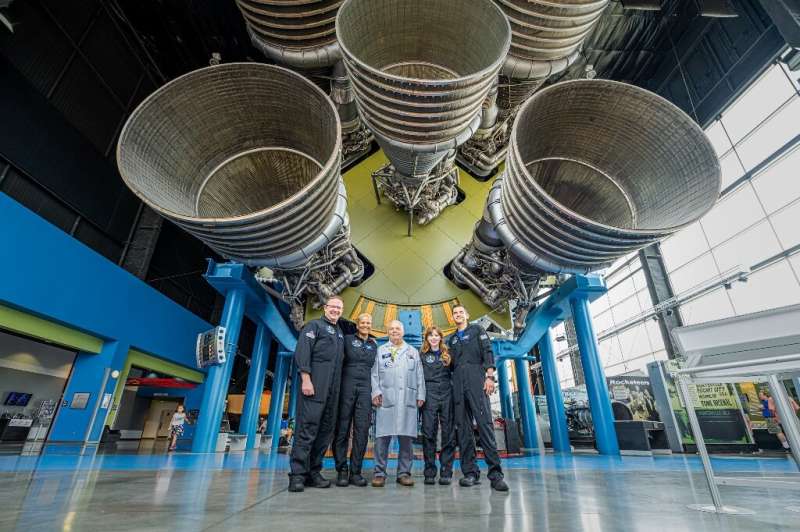
SpaceX is set to launch four people into space Wednesday on a three-day mission that is the first to orbit the Earth with exclusively private citizens on board.
Here are the key facts about Inspiration4.
The spacecraft
At the top of the Falcon 9 rocket, which is 70 meters high, sits the Dragon capsule, where the crew will be.
This spacecraft has already taken 10 astronauts to the International Space Station (ISS) on three separate missions.
The Dragon capsule, eight meters high and four meters wide, has been modified for this flight. A huge glass dome has been installed to offer passengers a 360-degree view of space.
The flight schedule
Take-off is scheduled on Wednesday beginning at 8:02 pm (0002 GMT Thursday) from the NASA Kennedy Space Center in Florida.
OneWeb’s broadband constellation reaching halfway mark
Wednesday, 15 September 2021 00:10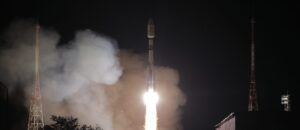
OneWeb is about halfway through deploying its low Earth orbit constellation, after Arianespace successfully launched another 34 satellites for the broadband operator Sept. 14 .
NASA selects five companies for lunar lander studies
Wednesday, 15 September 2021 00:06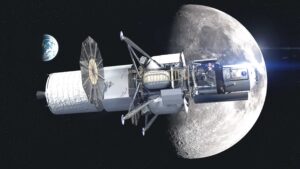
NASA will provide $146 million to five companies, representing the three teams that previously competed to develop the Artemis lunar lander, to perform studies for future lunar lander concepts.
Capella shares SAR data with researchers, app developers
Tuesday, 14 September 2021 22:10
Capella Space announced plans Sept. 14 to share synthetic-aperture radar (SAR) data gathered by its satellite constellation with researchers, nonprofit organizations, application developers and disaster response organizations.
NASA astronaut to stay on ISS for nearly a year
Tuesday, 14 September 2021 19:46
NASA confirmed Sept. 14 that one its astronauts, Mark Vande Hei, will remain on the International Space Station until next March, setting an American spaceflight duration record in the process.
Raytheon to acquire space electronics supplier SEAKR Engineering
Tuesday, 14 September 2021 19:36
Raytheon Technologies announced Sept. 14 it intends to acquire SEAKR Engineering, a privately owned supplier of space electronics based in Centennial, Colorado.
Russian Soyuz rocket launches 34 new UK satellites
Tuesday, 14 September 2021 17:51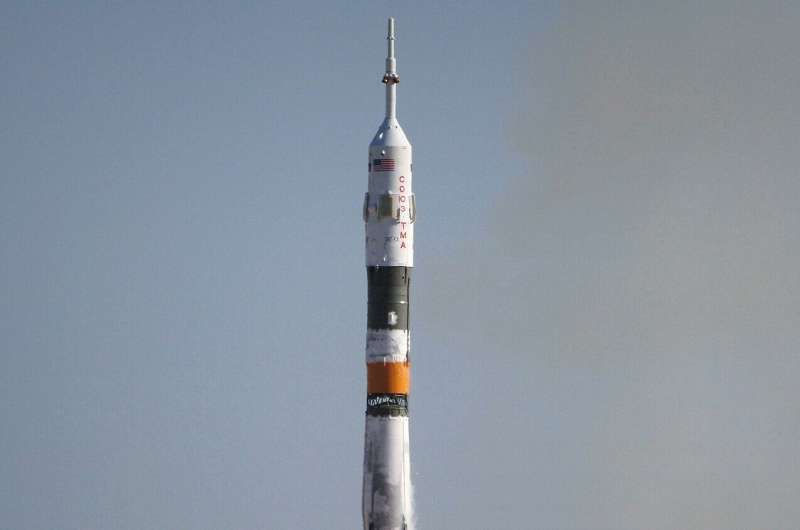
A Russian Soyuz rocket has blasted into space carrying 34 new satellites from British operator Oneweb, which aims to provide broadband internet everywhere in the world.
The rocket, operated by Europe's Arianespace, took off at 1807 GMT Tuesday from the Baikonur cosmodrome in Kazakhstan, broadcast live by the Russian Roscosmos space agency.
"The launch went to plan," Roscosmos chief Dmitry Rogozin said on Telegram.
It was the sixth launch of OneWeb satellites this year, the last one having been on August 22.
OneWeb is working to complete the construction of a constellation of low-earth orbit satellites providing enhanced broadband and other services to countries worldwide.
The company is competing against billionaires Elon Musk and Jeff Bezos in the race to provide fast internet for the world's remote areas via satellites.
The UK company plans for its global commercial internet service to be operational by next year, supported by some 650 satellites.
Arianespace, which has worked with Russia for close to two decades, is under contract to make 16 Soyuz launches between December 2020 and the end of 2022.
Spire snaps up exactEarth in first acquisition as a public company
Tuesday, 14 September 2021 15:25
Newly listed small satellite constellation operator Spire Global is buying Canadian ship-tracking company exactEarth in its first major acquisition, inflating expectations of more space consolidation amid a surge of companies going public.
ESA’s programme of Advanced Research in Telecommunications Systems (ARTES) 4.0
Tuesday, 14 September 2021 15:04 Video:
00:04:01
Video:
00:04:01
Satellite communication underpins everyday life, enabling fundamental improvements not just in communication, but also in transport, healthcare, safety and security, environmental services and many other industries. ESA and its member states invest more than €500 million every year in the telecommunications sector, supporting the introduction of innovative technologies, space-based systems and solutions boosting European competitiveness.
DARPA seeking satellite laser terminals that can talk to any space network
Tuesday, 14 September 2021 13:26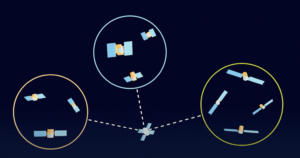
DARPA is asking for ideas on how to make optical inter-satellite links that can connect government and commercial space communications systems in low Earth orbit.
Space men at work
Tuesday, 14 September 2021 13:26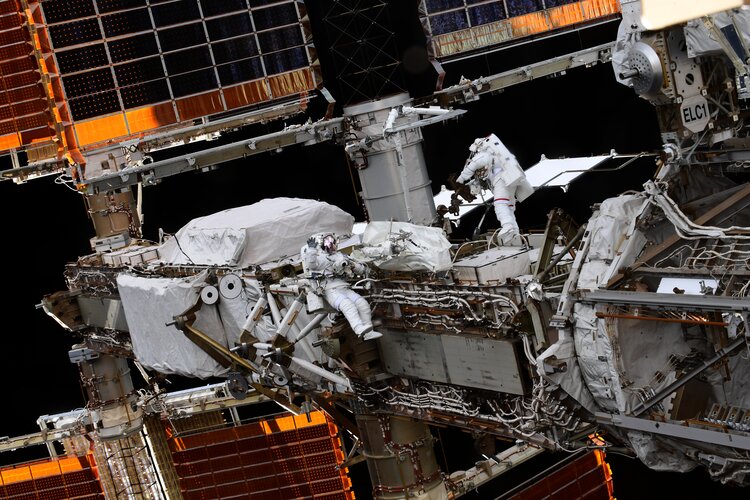 Image:
Image:
If you are spacewalking and you know it, raise your hand.
ESA astronaut Thomas Pesquet (left) and JAXA astronaut Aki Hoshide (right) performed a spacewalk on Sunday 12 September to prepare another section of the International Space Station for its solar panel upgrade.
The new solar arrays, called IROSA or ISS Roll-Out Solar Array, are being gradually installed over the existing arrays to boost the International Space Station’s power system.
Thomas and NASA astronaut Shane Kimbrough prepared and installed two IROSA solar panels across three spacewalks in June. The arrays were taken from their storage area outside the Space Station and
Image: Energy Department mission launched from Wallops
Tuesday, 14 September 2021 12:56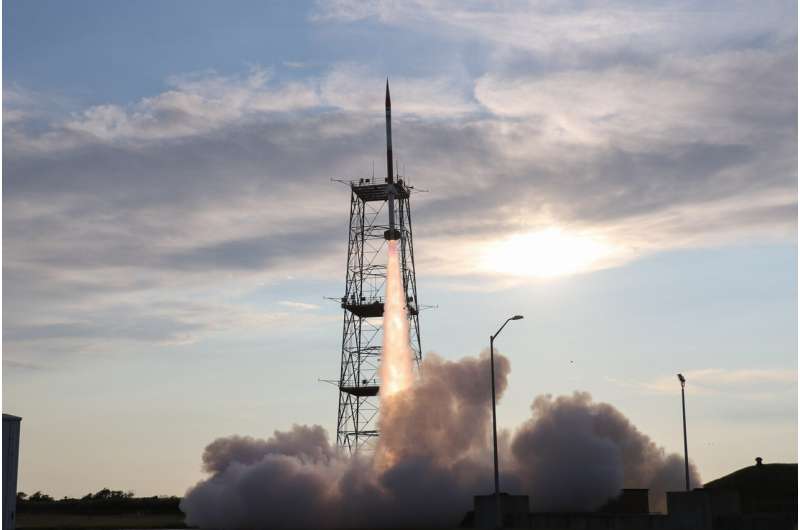
A two-stage suborbital sounding rocket launched at 6:07 p.m. EDT for the Department of Energy's National Nuclear Security Administration from NASA's launch range at Wallops Flight Facility on the Eastern Shore of Virginia.
The Terrier-Improved Malemute rocket flew the payload to an altitude of 99 miles. The payload descended by parachute and landed in the Atlantic Ocean, 59 miles from Wallops Island. The payload was recovered and preliminary indications are that good data was received.
The flight is part of the HOTShot program, short for High Operational Tempo, which collects scientific data that benefits aerospace research and informs future weapon designs for the U.S. nuclear enterprise. Its non-nuclear scientific experiments evaluate prototypes and help develop high-fidelity computer models and mechanical flight simulators.
The next rocket launch from Wallops is targeted for no earlier than October 2021.
Explore further
South Korea seeks $553 million space budget for 2022
Tuesday, 14 September 2021 12:33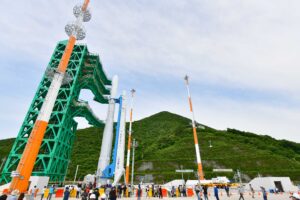
In a bid to nurture its nascent domestic space sector, South Korea is seeking a 640 billion won ($553 million) annual space budget for 2022. If granted in full, it would amount to a 4 percent increase from this year’s 615 billion won.
Two astronauts return to ISS after 7-Hour Spacewalk
Tuesday, 14 September 2021 11:33 Two international astronauts, Japan's Akihiko Hoshide and France's Thomas Pesquet have returned safely to the International Space Station (ISS) after completing a spacewalk that spanned nearly seven hours, NASA said.
"Astronauts Akihiko Hoshide of the Japan Aerospace Exploration Agency (JAXA) and Thomas Pesquet of ESA (European Space Agency) have concluded the first spacewalk conducted by
Two international astronauts, Japan's Akihiko Hoshide and France's Thomas Pesquet have returned safely to the International Space Station (ISS) after completing a spacewalk that spanned nearly seven hours, NASA said.
"Astronauts Akihiko Hoshide of the Japan Aerospace Exploration Agency (JAXA) and Thomas Pesquet of ESA (European Space Agency) have concluded the first spacewalk conducted by Space Babes
Tuesday, 14 September 2021 11:33 Houston, we have a problem! Love and sex need to happen in space if we hope to travel long distances and become an interplanetary species, but space organizations are not ready.
National agencies and private space companies - such as NASA and SpaceX - aim to colonize Mars and send humans into space for long-term missions, but they have yet to address the intimate and sexual needs of astron
Houston, we have a problem! Love and sex need to happen in space if we hope to travel long distances and become an interplanetary species, but space organizations are not ready.
National agencies and private space companies - such as NASA and SpaceX - aim to colonize Mars and send humans into space for long-term missions, but they have yet to address the intimate and sexual needs of astron 
